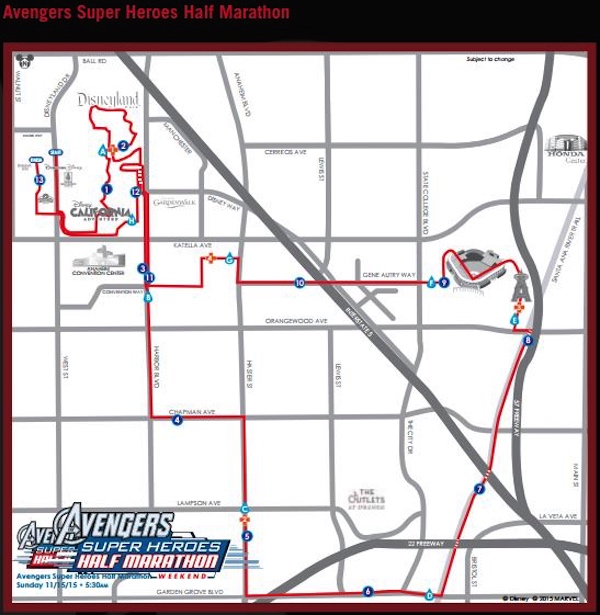Anisum
DIS Veteran
- Joined
- May 15, 2015
Depends on how much you need. I personally don't bring more but I have friends who like to carry their camelbak hydration packs on course. I also am not generally a nuun or electrolyte drinker but at Disney they usually have Poweraid in addition to water at every water station. Looking at last year's Avenger's half course (this year's may differ) they have about 8 water stations which for me is definitely enough. You can see the positioning from last year below. All the light blue drops are water. The red crosses are medical/aid stations.Is there enough hydration on the course? Do you bring more? What about nuun or electrolyte drinks?

Edit: Also answered some questions directed at others. I will fuel between 1-4 times during a race depending on how I'm feeling. My body seems to process the fuel fast enough that I can take it when I start to feel meh to prevent bonking.
I also will echo everyone else about the stroller. I'm not sure I could make it 9.5 miles without my back killing me.
With regards to foot problems, I never had any major ones. I usually just make sure I have shoes that I am fitted for. You can get fitted at most running stores.
I did Galloway for my first half (a Disney half) and I felt it prepared me well with regards to the distance however weather where I live is very different from Florida weather so I struggled with that. Luckily California should be wonderful for your race (biggest issue could be if the Santa Ana winds come in but you can always add more layers) but I also like Hidgon. I think as long as you're on a training plan you can commit the time and energy to and stick with it both will adequately prepare you.
Last edited:
